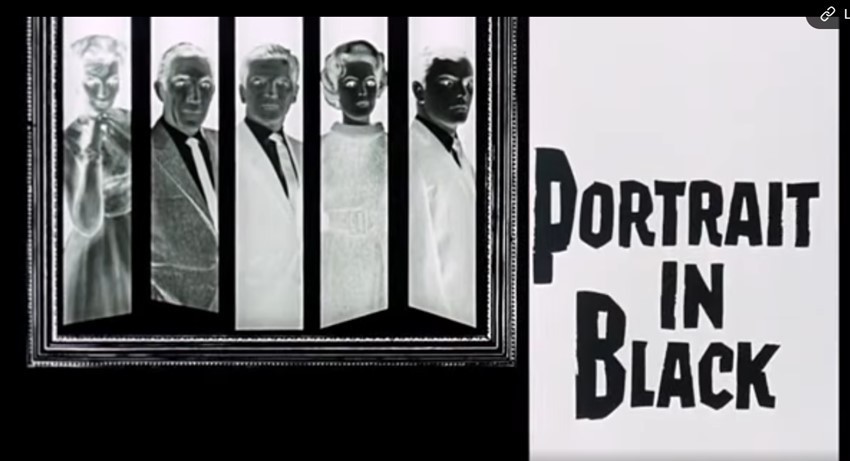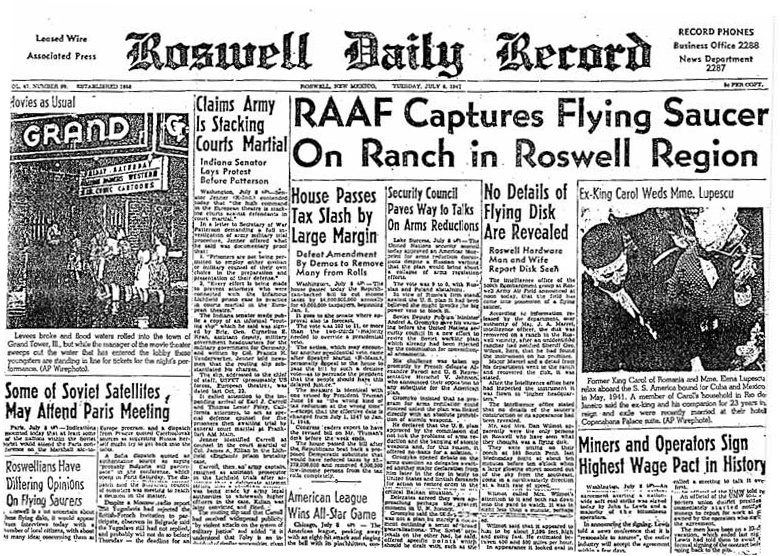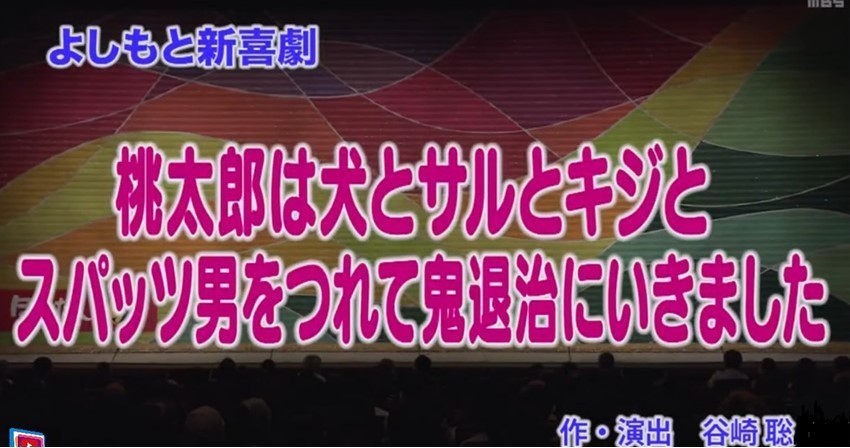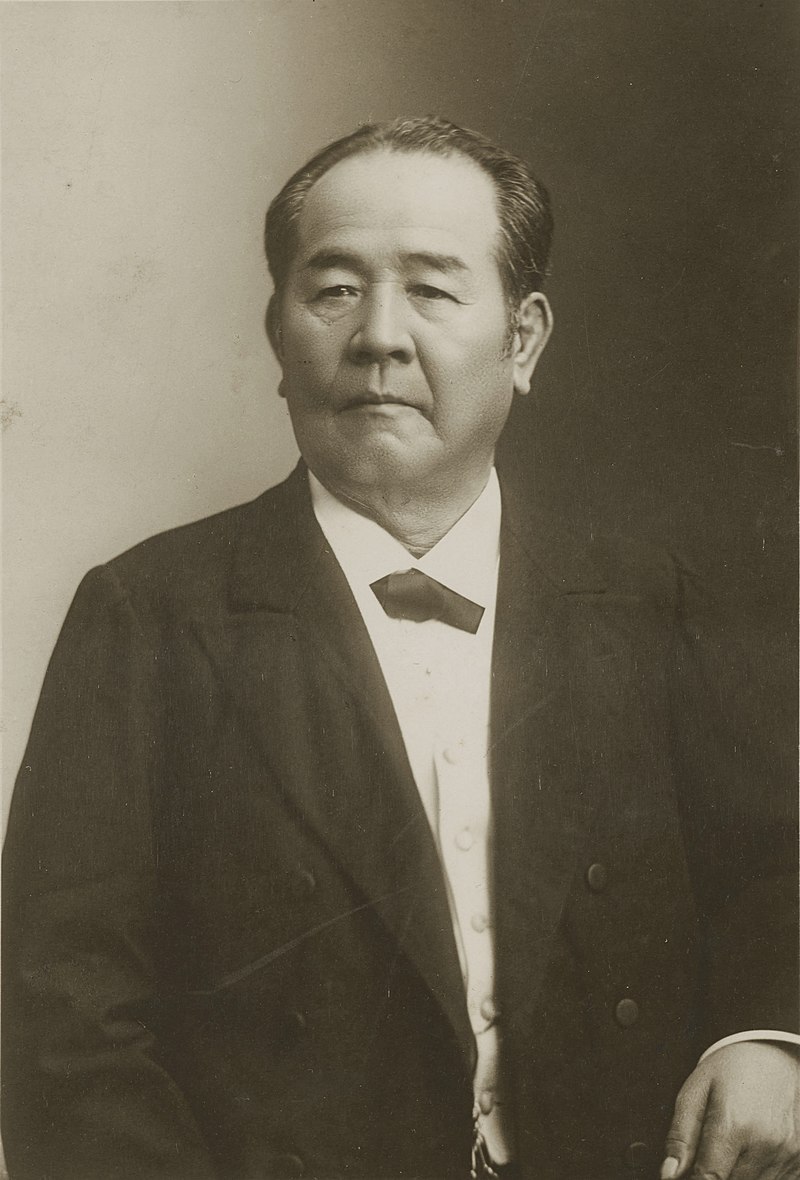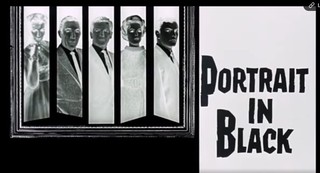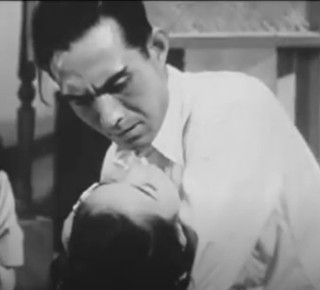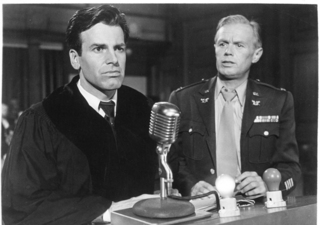
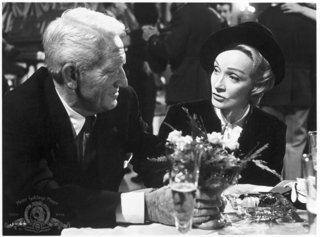
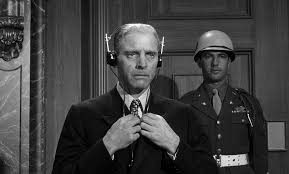
Plot
Judgment at Nuremberg centers on a military tribunal convened in Nuremberg, Germany, in which four German judges and prosecutors stand accused of crimes against humanity for their involvement in atrocities committed under the Nazi regime. Judge Dan Haywood (Spencer Tracy) is the Chief Trial Judge of a three-judge panel that will hear and decide the case against the defendants. Haywood begins his examination by trying to learn how the defendant Ernst Janning (Burt Lancaster) could have sentenced so many people to death. Janning, it is revealed, is a well-educated and internationally respected jurist and legal scholar. Haywood seeks to understand how the German people could have turned blind eyes and deaf ears to the crimes of the Nazi regime. In doing so, he befriends the widow (Marlene Dietrich) of a German general who had been executed by the Allies. He talks with a number of Germans who have different perspectives on the war. Other characters the judge meets are US Army Captain Byers (William Shatner), who is assigned to the American party hearing the cases, and Irene Hoffmann (Judy Garland), who is afraid to provide testimony that may bolster the prosecution's case against the judges.
German defense attorney Hans Rolfe (Maximilian Schell) argues that the defendants were not the only ones to aid, or at least turn a blind eye to, the Nazi regime. He also suggests that the United States has committed acts just as bad or worse as those the Nazis perpetrated. He raises several points in these arguments, such as: U.S. Supreme Court Justice Oliver Wendell Holmes, Jr.'s support for the first eugenics practices (see Buck v. Bell ); the German-Vatican Reichskonkordat of 1933, which the Nazi-dominated German government exploited as an implicit foreign recognition of Nazi leadership; Stalin's part in the Nazi-Soviet Pact of 1939, which removed the last major obstacle standing in the way of Germany's invasion and occupation of western Poland, initiating World War II; and the atomic bombings of Hiroshima and Nagasaki in the final stage of the war in August 1945.
Janning, meanwhile, decides to take the stand for the prosecution, stating that he is guilty of the crime he is accused of: condemning to death a Jewish man of "blood defilement" charges−namely, that the man slept with a 16-year-old Gentile girl−when he knew there was no evidence to support such a verdict. During his testimony, he explains that well-meaning people like himself went along with Hitler's anti-Semitic policies out of a sense of patriotism, even though they knew it was wrong.
Haywood must weigh considerations of geopolitical expediency and ideals of justice. The trial takes place against the background of the Berlin Blockade, and there is pressure to let the German defendants off lightly so as to gain German support in the growing Cold War against the Soviet Union.[7] All four defendants are found guilty and sentenced to life in prison.
Haywood visits Janning in his cell. Janning affirms that Haywood's decision was just, but asks him to believe that he and the other defendant judges never desired the mass murder of innocents. "We never knew," he insists, "that it would come to that." Judge Haywood replies, "Herr Janning, it came to that the first time you sentenced a man to death you knew to be innocent." Haywood departs; a title card informs the audience that, of 99 defendants sentenced to prison terms in Nuremberg trials that took place in the American Zone, none were still serving their sentences as of the film's 1961 release.
From https://en.wikipedia.org/wiki/Judgment_at_Nuremberg
Cast
Spencer Tracy as Chief Judge Dan Haywood スペンサー・トレイシー
Burt Lancaster as defendant Dr. Ernst Janning バート・ランカスター
Richard Widmark as prosecutor Col. Tad Lawson リチャード・ウィドマーク
Maximilian Schell as defense counsel Hans Rolfe マクシミリアン・シェル
Marlene Dietrich as Frau Bertholt マレーネ・ディートリッヒ
Montgomery Clift as Rudolph Peterson モンゴメリー・クリフト
Judy Garland as Irene Hoffmann-Wallner ジュディ・ガーランド
Academy Awards
Won
Best Actor (Maximilian Schell)
Best Adapted Screenplay
Nominated
Best Picture
Best Director (Stanley Kramer)
Best Actor (Spencer Tracy)
Best Supporting Actor (Montgomery Clift)
Best Supporting Actress (Judy Garland)
Best Art Direction, Black and White
Best Cinematography, Black and White
Best Costume Design, Black and White
Best Film Editing
今日の作品は社会派のドラマを多く制作しているスタンリー・クレイマー監督の「ニュールンベルグ裁判」です。出演はスペンサー・トレイシーやバート・ランカスターなど豪華キャストです。
アカデミー賞にも11部門にノミネートされ評価も高かったのですが、受賞は主演男優賞と脚色賞の2つにとどまりました。1961年は「ウエストサイド物語」が公開された年でもあったので、苦戦したようです。
国のためにやってことへの是非、戦勝国が敗戦国を裁くことの是非、正義とは何かということがこの映画で描かれていると言えるでしょう。個人的な感想ですが、この映画は裁判を批判的に描いていると思うのです。だからベルトホルト夫人といったキャラクターも登場させているのでしょう。
この映画は嘘を積み重ねています。裁判は最初を除いて英語で行われていますし、ドイツ人被告もアメリカ人が演じています。でも、そういった嘘を積み重ねていきながらメッセージを伝えるというのが映画でしょう。
最終的に裁判は被告の全員有罪に終わりますが、負けた弁護側だけではなく、勝ったはずの検察側も、判決を下したヘイウッド判事もすっきりしません。ローソン大佐は上司からソ連の共産主義と戦っていくにはドイツ国民の協力が必要だ、有罪が出たら協力しないだろうと言われていたのです。ヘイウッド裁判長もベルトホルト夫人と付き合いがあったのです。裁判の後ヘイウッドはベルトホルト夫人に電話をかけますが、判決に失望した夫人は電話を取ろうとはしませんでした。結局誰が裁判で勝ったのかと思わせる映画です。
バート・ランカスター演じるヤニングは裁判中は裁判の終わりまで言葉を発せず、最後になってようやく証言をします。その証言は力強いものでしたが、裁判終了後、拘置所を訪れたヘイウッドに虐殺のことは本当に知らなかったと自己弁護する弱さも見せています。
 | 価格:3,246円 |
【このカテゴリーの最新記事】
-
no image
-
no image
-
no image


